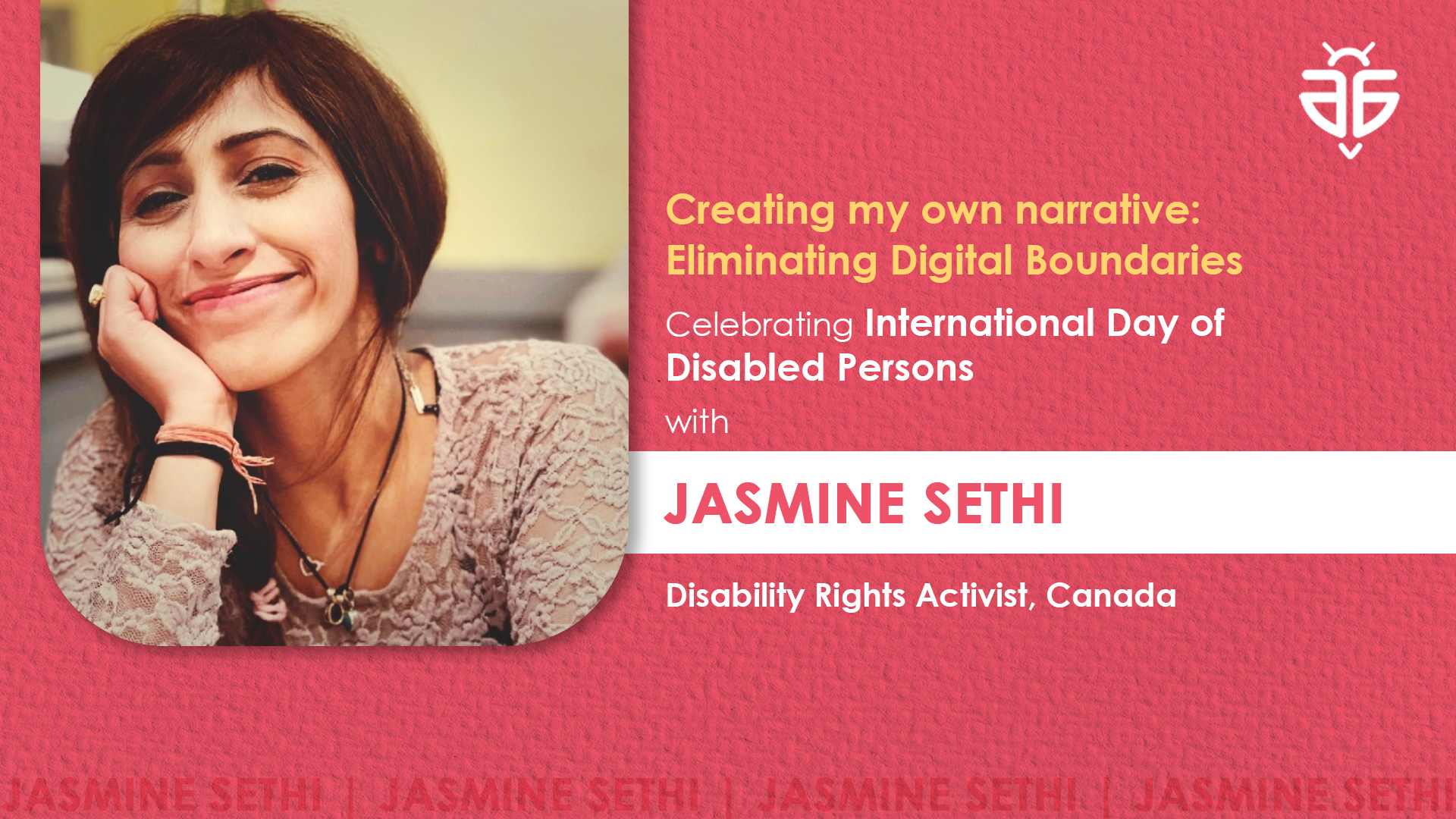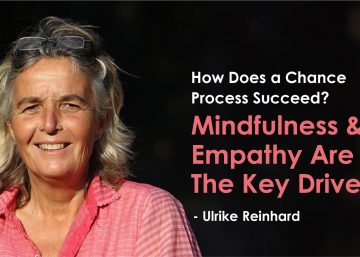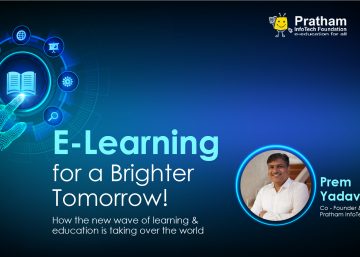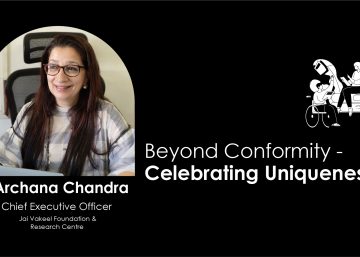“So much of starting a business or effecting change boils down
to having the confidence and courage to simply try!”
– Simon Sinek.
December 3rd marks the International Day of Disabled Persons which aims to promote awareness of disability issues and integration of people with disabilities in society. aidbees, the world’s first social kindness platform is making a positive impact by doing community outreach and giving voice to the voiceless by following a fundamental principle: Be Kind.
As the founder of a Canadian research-based organization, the Humanitarian Clique and Project D-52 on disability awareness, I’ve created a narrative that propels change in a non-discriminatory space. This opportunity has led me to meet creative people with lived experiences of disability as they expressed their interest in being a part of this contemporary movement. As a leader, accessibility and inclusiveness are two paramount principles I abide by in a digitally dominant volunteering nonprofit organization.
I’ve ensured that all our virtual zoom meetings are completely accessible as my team works remotely from around Canada and internationally. For instance, I’ve ensured all accessibility features were activated in our organization’s zoom account, such as closed captioning, keyboard shortcuts, screen reader alert, full view transcript, whiteboard accessibility, pdf. Exported documents, and ALT text describing an image in detail in presentations that could be used with assistive learning technology and likewise, other tools.
Additionally, in our remote international team meetings, it is part of our agenda that we review the accessibility features but as a leader, I recognize that more efforts must be made. Recognizing this is a big step in itself. For instance, I will work with our staff to ensure that the text within the images is readable, and we will increase the usage of color contrasts in the PowerPoint presentations to ensure accessibility. At the beginning of our meetings, the participants always introduce themselves but it’s time to do more, we will ask the speaker to also briefly talk about their appearance and pronunciation [he/him/she/her/they/them].
My efforts will also be to get an ASL interpreter in the meeting room going forward. For the whiteboard feature, we have options available in terms of font size and colors to emphasize the accessibility features in virtual meetings. Since we are a remote organization launched amidst the COVID-19 pandemic, our foundation is to work remotely with a diverse set of networks from around the world but at the same time, as a leader, I will take every step possible to ensure that I am being mindful and attentive to the needs of the people with disabilities in my team, and in general.
As a leader, I will continue supporting persons with learning or cognitive disabilities and introduce appropriate measures for people with visible and invisible disabilities.
Further, I’m cognizant of the fact that English is a secondary language for all with some exceptions, such as newcomers to Canada and native speakers internationally. The end goal here is to expand the video’s reach and impact by eliminating digital boundaries which will magnify productivity levels and equal greater outcomes. To emphasize, we implement the constructive feedback of our stakeholders into diversity, inclusion, and equity policies at our organization.
I’ve observed that everyone, regardless of disability status, class, gender, ideologies, and ethnicity is longing to be part of an innovative movement that gives them an independent voice and an identity. Rather a platform they can call their own and self-express creativity without restrictions. Therefore, I’ve created the Humanitarian Clique, ‘being human’ and making an impact ‘together’ that’s predominantly research-focused.
I’ve firsthand witnessed communication with people with disabilities in my extended family, and I always ensured to be careful with the usage of my language and words. Likewise, I started receiving applications for collaborative projects for the researcher position through Charity Village and LinkedIn. This all led me to reflect and become a better version of myself: to learn how to support persons with lived experiences of disability, view it from an intersectional lens as a non-disabled person, and treat everyone equally.
As a result, all of this led me to learn more about working with persons with disabilities, respectively. LinkedIn is an excellent platform as it allowed me to learn about disability influencers from around the world, and the positive impact their voice is making by highlighting incidences of discrimination and strategies to overcome the same. I found this intriguing as I know that progress has been made, yet a gap still exists as I’ve discovered by having conversations with my internal team.
Therefore, my vision is to utilize Project D-52 to understand how and what non-disabled persons can do to become more self-aware to communicate, understand and view the experiences directly from the lens of a person with a disability. My aim is to make this experience a part of the solution, not the problem. Additionally, all of this made me reflect on the powerful impact words and language can make when conversing with people with lived experiences of disability.
It is integral to emphasize the abilities of the individual’s personality and skill sets and not highlight the disability status. Always put the person first, and not the disability. This led me to use my platform and created a one-time launch in 2023 named Project D-52 and its mission is to create a forward-thinking mindset through a collaborative research project by addressing the misconceptions and stereotypes surrounding people with lived experiences of disability.
The current strategies are effective at our organization, and we will make every effort to ensure that everyone, regardless of disability status, is well-respected and given an equal opportunity. I am confident that everyone has a lot to offer, and I give them this platform as an opportunity to exactly prove that. We have initiated a dialogue that challenges one to question their identity and repeatedly asks: what more am I capable of?
Our aim is to constantly promote diversity in our volunteer organization whilst ensuring we stop segregating marginalized and mainstream groups and form them into a single community. However, I recognize that as simple as it sounds, it is equally more complex; hence, research and development, and policy intervention programs can be the resolution to address the growing disparities, but we have a long way to go to address the gaps.
Together, on the special occasion of The International Day of Disabled Persons, let’s take a moment to pause and reflect on the progress that has been made thus far and manifest the constant efforts that must be apprehended. This is not just for us but for generations to come, to look back proudly at this movement as a historic reform, and I want to be a small part of this change.
With our growing efforts, our organization is being recognized in local newspapers, I will be co-authoring an e-book and launching a leadership program to be invited to a talk show, all planned for the new year. I’ve enrolled in a university program that focuses on disability studies as that will strengthen my leadership capacity. I am the captain of my own narrative and I want to build credibility in my organization. I simply want to be a small part of a big movement to make a social impact we’re all striving to make.
My mission resonates with aidbees as it is to spread kindness, and my efforts don’t end here.
As a leader of a research-based nonprofit organization, I want to be an advocate for people with disabilities and view both visible and invisible disabilities from an intersectional lens in creating transformative solutions to complex problems. Our platform gives a lot of value to authenticity and is a captain of storytelling that lights people up: all you need is a growth mindset!
Click here to read more stories of change, awareness, inspiration and practising kindness!
aidbees works with 50+ NGOs across 10+ themes including environment, education, health, empowerment, etc. You can support them and join us in spreading the Kindness Revolution. Click here to explore more!
About the Guest Author: Ms. Jasmine Sethi is the founder of a research-based nonprofit organization amidst the COVID-19 pandemic, named the Humanitarian Clique and Project D-52 on disability awareness. She launched an arts-based program that uses arts to express social change. She is an impact officer at Language Linkers, an international charitable organization that empowers refugees and asylum seekers through digital education and supports people experiencing trauma in conflict-affected places. Jasmine is a self-reflective, balanced, and optimistic leader. Her educational background includes York University| Waterloo University| Toronto Metropolitan University| University of Alberta| University of Pittsburgh and she is a changemaker impacting the lives of many!







